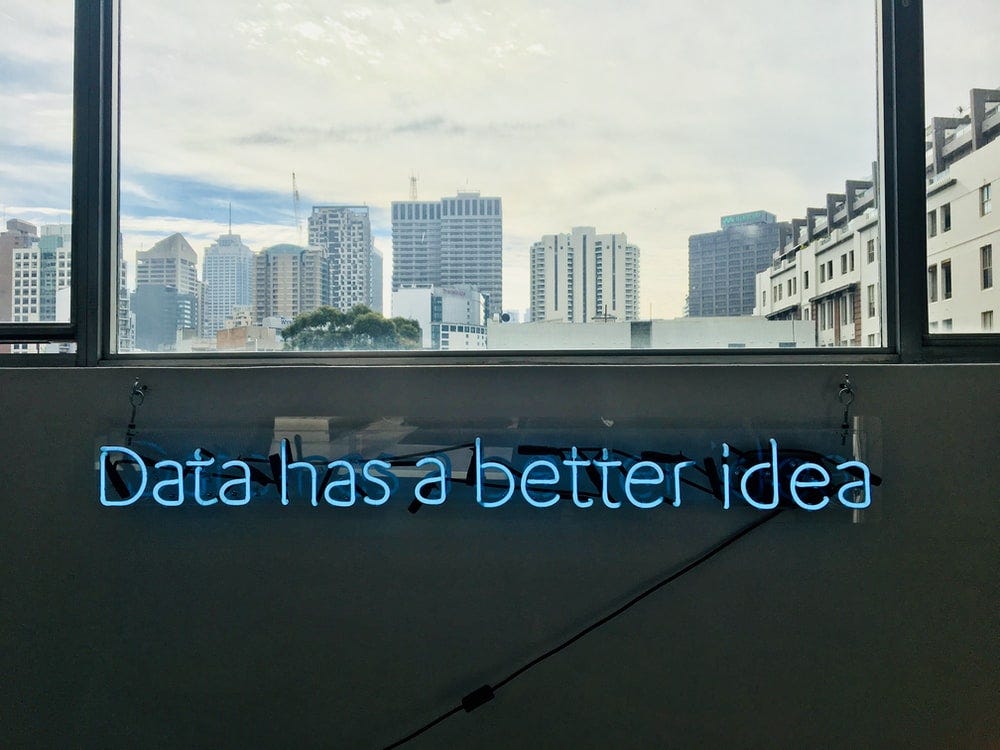Market Snapshot: 78 Emerging Micro-VCs
Analyzing a slice of the emerging micro-VC market in Q4 2020
Oper8r is focused on enabling the next generation of great founders in VC by empowering the next generation of great emerging micro-VCs that fund them.
Tell us about yourself and how we can help:
TLDR
Transparency is a problem for the emerging micro-VC market - it’s hard to know who is in it, or how they compare
Starting in September, we let VCs self-report data to help us get a better sense of the emerging micro-VC community, the obstacles they face, and how we can help solve them
We are sharing anonymized and aggregated data from 78 VCs
We updated the form to capture benchmarks VCs and LPs are asking for

“Follow the data and open up”
Photo by Chris Barbalis on Unsplash
We included in previous posts a link to a form letting VCs share more about themselves.
Why? One of the responses to the question ‘What do you wish LPs did differently?’ put it perfectly:
Stop behaving like VCs did circa 1995, follow the data and open up
It does seem like there’s a general stigma around emerging VCs, even though market-level data show that this concern is likely unfounded.
But market-level data isn’t enough. LPs often tell us they recognize the potential value of emerging VCs, but are also quick to say that it’s too hard to figure out which ones have the most potential.
So we want to help reverse this trend by increasing transparency, standardization, and access, so that LPs can actually follow the data and open up.
Thank you!
Before getting into the data, a big Thank you! to all of you who took the time to tell us about yourselves. We hope this is useful to the the majority of respondents who asked for “Benchmarks: Tell me how I compare to other VCs.”
Short note on methodology: All data is self-reported, anonymized, and aggregated, drawing from a sample of 78 submissions over 6 weeks beginning in September 2020.
The Data: Team, Strategy, Track Record

Photo by William Warby on Unsplash
Team
Looking at the teams behind the VCs, there seems to be a clear trend toward more diversity across multiple dimensions:
35% of GPs identified as female
67% identified as an underrepresented minority
27% are in US cities regarded as VC hubs (San Francisco, NYC, etc.)
25% are in US cities not commonly regarded as VC hubs (Las Vegas, Baltimore, etc.)
34% are outside the US (Europe, UK, Asia, Africa)
12% are distributed - multi-city or multi-national
As it relates to “why you,” teams tended to emphasize:
Network (advisors, experts, corporations, investors), product (new type of fund), background as it relates to expertise and/or affinity (founders, operators, investors), and competitive landscape (“the only VCs investing in X market”)
10% highlighted investing track record as to why they should be in the market
1% highlighted lack of track record as their reason for being
Strategy
Regarding strategy (and portfolio construction), emerging VCs seem to be focusing on more ownership and specialization:
83% focus on early-stage investing (32% pre-seed + 51% seed)
Over the next 2 years, expect to invest in 16 (median) to 19 (average) companies
61% of VCs expect to lead deals, 17% will follow, and 20% are undecided
13% do not have a geographic focus
Thesis is harder to quantify, but there are some trends:
Theses were generally consistent in terms of focusing on an emerging market (type of founder, customer, technology, sector, geography) or asset (value-added services, corporate network, capital network)
Only 6% of the respondents referred to data as evidence of a thesis’s potential (e.g. market size or growth-rate)
10% framed their thesis in the form of a problem or gap in the market that their strategy would respond to
Track record
There was a meaningful range in terms of track record:
Capital deployed: Average of ~$6M and median ~$1M
Number of investments: Average of 19, and median of 10
Deal size: Average of ~$500K, and median of $110K
6% don’t have a track record / have made 0 investments
24% are LPs in other funds
45% identified follow-on investors. Firms that appeared multiple times included Sequoia, A16Z, Founders Fund, RRE, LSVP, Maveron, Y Combinator, Insight Partners, Greylock, DCVC, Lux Capital, 8VC, General Catalyst, Iconiq, and Sapphire Ventures
…And Feedback
As a bonus, some feedback for LPs on what they should be doing differently:
Be more open, direct, and transparent (!)
Be more clear around mandates, process, and communication
Speed is important - say yes or no faster
Spend more time with underrepresented managers
Spend more time in under-served geographies
Be more like Plexo Capital, Sapphire Ventures, Ahoy Capital

Photo by Franki Chamaki on Unsplash
Opening Up The Data
We have been asking VCs and LPs what data they would like to see about micro-VCs. Here is some what what we heard:
First fund stats, e.g. Size, number of LPs, time to close, largest check-size
Track record, e.g. TVPI, DPI, IRR, MOIC
Team, e.g. Number of GPs, background, representation, types of LPs and advisors
We incorporated the feedback into a new and improved forms, which you can find here:
For friends of emerging VCs (LPs, mentors, experts, partners)

